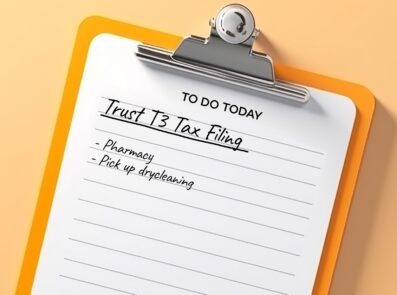On December 14, 2017, the Federal Government adopted proposed changes to the rules relating to Work in Progress (WIP). As a result, professionals will no longer be entitled to elect to exclude WIP from their income.
Under the Income Tax Act (ITA), professionals include lawyers, accountants, dentists, medical doctors, veterinarians, or chiropractors. From our experience, professionals mainly affected by these changes will be lawyers and accountants who generally have higher WIP than other professionals.
Effective Date
If a professional operates on a calendar year basis, the first year of the changes would be the year beginning January 1, 2018. For off-calendar businesses, it will impact the first fiscal year that starts after March 21, 2017.
New Transitional Period
The legislation now provides a five-year transition, or “Transition Adjustment,” of the WIP to diminish the impact on professionals.
In summary, WIP will be included at a rate increasing by 20% per year, over a five taxation year period. All WIP will be included by the end of the fifth taxation year. This will add complexity, and may be a challenge for some professionals.
The Transition Adjustment will be calculated according to the balance of the WIP at the end of each taxation year as the lower of its cost or fair market value (FMV). As such, the WIP balance will most likely differ from year to year.
From our experience, for most professionals, the cost will be less than FMV; therefore, it would be more beneficial to use the cost method.
Who will be most affected?
Professionals who carry on their activities through a partnership will be the most impacted by these changes, especially:
- Retiring partners;
- New partners; and
- Professionals who have volatility in their WIP from year to year.
Inequity may arise, since new partners and current partners subject to the Transition Adjustment will have a WIP inclusion, even if they did not claim the deduction in past years. For example, a partner retiring in December 2017 will pay no tax on WIP. For a partner retiring in December 2018, the retiring partner will pay tax on 20% of December 2018’s WIP, which may be expensive, depending on the volatility of the firm’s WIP.
Note for Contingency Fee Arrangement
The CRA has indicated that, until the right to collect an amount is established, the amount is not receivable. In these cases, in valuing the WIP, no amount should be included for these fees. The income will be recognized when the right to collect the amount is established.
Take Away
Consideration should be given to:
- Tracking WIP by partner, and adjusting their income allocation accordingly to minimize inequity between partners;
- Reviewing the partnership agreement to ensure that the effect of the changes in the treatment of WIP has been addressed;
- Being more diligent in billing to minimize the WIP balance at year end; and
- Ensuring the implication of WIP is considered in the purchase price, in the event of the sale or purchase of participation in a professional partnership.
Members of GGFL’s team of experienced tax experts are ready to help. If you are impacted by this proposed new measure, and need advice on how best to navigate your future tax filings, please contact us at 613-728-5831, or email info@ggfl.ca. Also visit our GGFL Library for all the latest in accounting and tax news.







